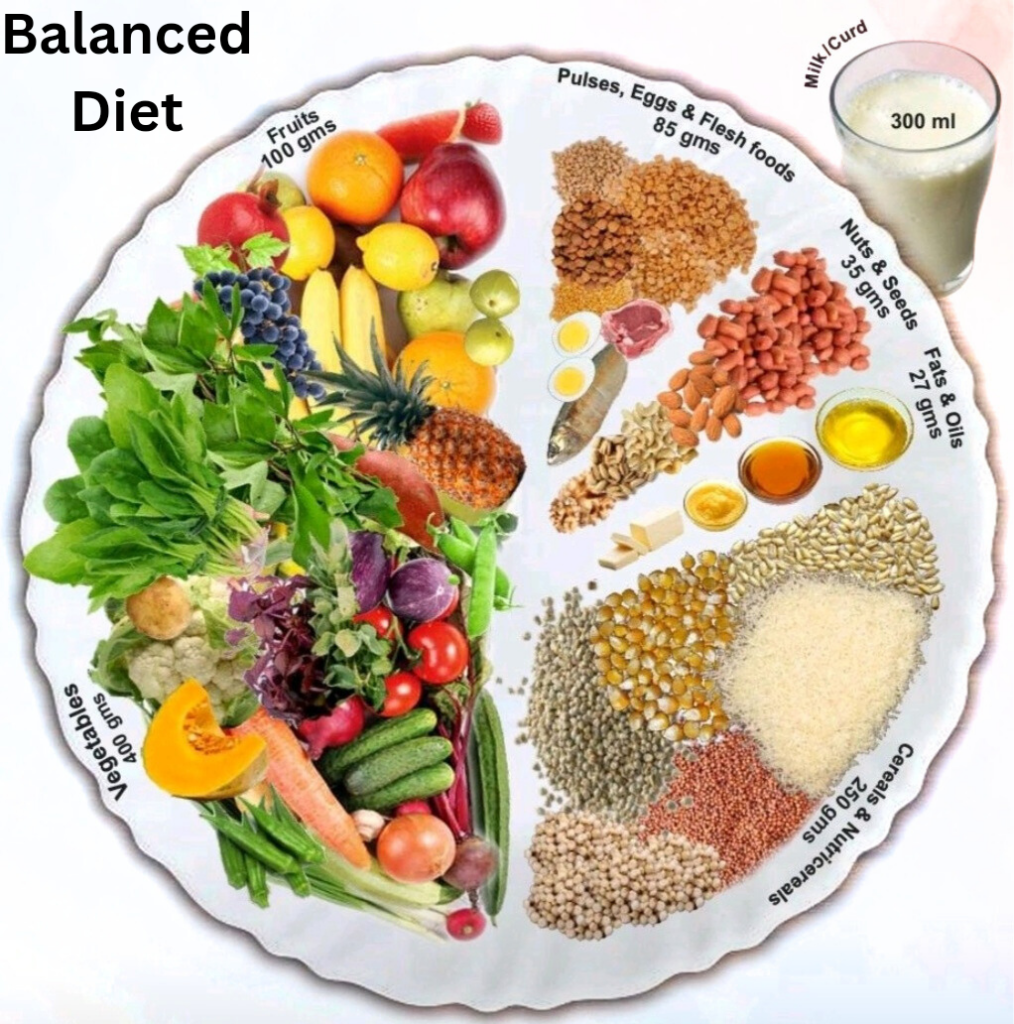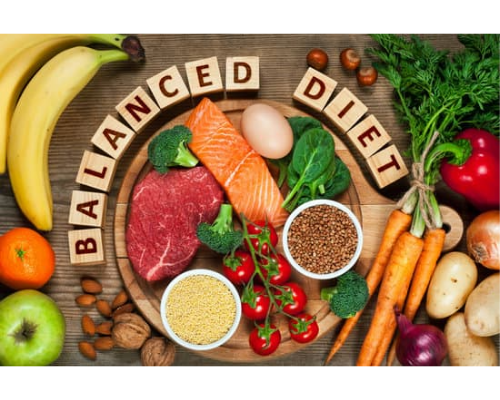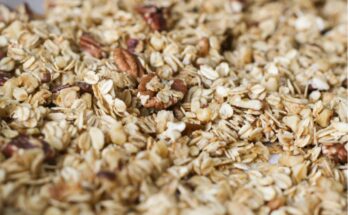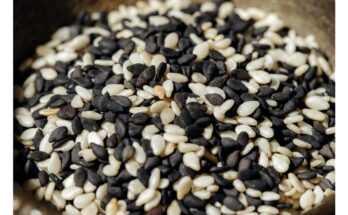Nutrients that we obtain through food have vital effects on physical growth and development, maintenance of normal body function, physical activity and health. Nutritious food is, thus needed to sustain life and activity. Our diet must provide all essential nutrients in the required amounts. Requirements of essential nutrients vary with age, gender, physiological status, physical activity and stress. Dietary intakes lower or higher than the body requirements can lead to under-nutrition (deficiency diseases) or over-nutrition (diseases of affluence) respectively. Eating too little food during the vulnerable periods of life such as infancy, childhood, adolescence, pregnancy and lactation and eating too much at any age can lead to harmful consequences. An adequate diet, providing all nutrients, is needed throughout our lives. The nutrients must be obtained through a judicious choice and combination of a variety of foods.

Carbohydrates, fats and proteins are macro-nutrients, which are needed in large amounts. Vitamins and minerals constitute the micro-nutrients and are required in small amounts. These nutrients are necessary for physiological and biochemical processes by which the human body acquires, assimilates and utilizes food to maintain health and activity.
Carbohydrates
Carbohydrates are either simple or complex, and are major sources of energy in all human diets. They provide energy of 4 Kcal/g. The simple carbohydrates, glucose and fructose, are found in fruits, vegetables and honey, sucrose in sugar and lactose in milk, while the complex polysaccharides are starches in cereals, millets, pulses and root vegetables and glycogen in animal foods. The other complex carbohydrates which are resistant to digestion in the human digestive tract are cellulose in vegetables and whole grains, and gums and pectins in vegetables, fruits and cereals, which constitute the dietary fibre component.
Dietary fibres delay and retard absorption of carbohydrates and fats and increase satiety value. Diets rich in fibre reduce glucose and lipids in blood and increase the bulk of the stools. Diets rich in complex carbohydrates are healthier than low-fibre diets based on refined and processed foods.
Proteins
Proteins are primary structural and functional components of every living cell. Almost half the protein in our body is in the form of muscles and the rest of it is in bone, cartilage and skin. Proteins are complex molecules composed of different amino acids. Certain amino acids which are termed “essential” since they are not synthesized in the human body and have to be obtained from proteins in the diet. Other non-essential amino acids can be synthesized in the body to build proteins. Proteins perform a wide range of functions and also provide energy (4 Kcal/g).
Protein requirements vary with age, physiological status and stress. More proteins are required by growing infants and children, pregnant women and individuals during infections and illness or stress. Animal foods like milk, meat, fish and eggs and plant foods such as legumes are rich sources of proteins. Animal proteins are of high quality as they provide all the essential amino acids in right proportions, while plant or vegetable proteins are not of the same quality because of their low content of some of the essential amino acids. However, a combination of cereals, millets and pulses provides most of the amino acids, which complement each other to provide better quality proteins.
Fats
Oils and fats such as butter and ghee constitute dietary fats. Fats are a concentrated source of energy providing 9 Kcal/g, and are made up of fatty acids in different proportions. Dietary fats are derived from two sources viz. the invisible fat present in plant and animal foods; and the visible or added fats and oils (cooking oil). Fats serve as a vehicle for fat-soluble vitamins like vitamins A and E and carotenes and promote their absorption. They are also sources of essential polyunsaturated fatty acids. It is necessary to have adequate and good quality fat in the diet with sufficient polyunsaturated fatty acids inproper proportions for meeting the requirements of essential fatty acids. The type and quantity of fat in the daily diet influence the level of cholesterol and triglycerides in the blood. Diets should include adequate amounts of fat particularly in the case of infants and children, to provide concentrated energy since their energy needs per kg body weight are nearly twice those of adults per kg body weight. Adults need to be cautioned to restrict intake of saturated fat (butter, ghee and hydrogenated fats) and cholesterol (eggs, organ meat). Excess of these substances could lead to obesity, diabetes, cardiovascular disease and cancer.
Vitamins and minerals
Vitamins are chemical compounds required by the body in small amounts. They must be present in the diet as they cannot be synthesized in the body. Vitamins are essential for numerous body processes and for maintenance of the structure of skin, bone, nerves, eye, brain, blood and mucous membrane. They are either water-soluble or fat-soluble. Vitamins A, D, E and K are fat-soluble, while vitamin C, and the B-complex vitamins such as thiamin (B1), riboflavin (B2), niacin, pyridoxine (B6), folic acid and cyanocobalamin (B12) are water- soluble. Pro-vitamins like beta-carotene are converted to vitamins in the body into vitamin A. Fat-soluble vitamins can be stored in the body while water-soluble vitamins are not and get easily excreted in urine. Vitamins B-complex and C are labile vitamins and are easily destroyed by heat, air or during drying, cooking and food processing.
Minerals are inorganic elements found in body fluids and tissues. The important macro minerals are sodium, potassium, calcium, phosphorus, magnesium and sulphur, while zinc, copper, selenium, molybdenum, fluorine, cobalt, chromium and iodine are micro-minerals. They are required for maintenance and integrity of skin, hair, nails, blood and soft tissues. They also govern nerve cell transmission, acid/base and fluid balance, enzyme and hormone activity as well as the blood-clotting processes.
Balanced diet:
A balanced diet is one which provides all the nutrients in required amounts and proper proportions. It can easily be achieved through a blend of four basic food groups. The quantities of foods needed to meet the nutrient requirements vary with age, gender, physical activity and physiological status. A balanced diet should provide around 60- 70% of total calories from carbohydrates, preferably starch, about 10-12% from proteins and 20-25% from fat.
In addition, a balanced diet should provide other non-nutrients such as dietary fibre, antioxidants and phytochemicals which bestow positive health benefits. Antioxidants such as vitamins C and E, beta-carotene, riboflavin and selenium protect the human body from free radical damage. Other phytochemicals such as polyphenols, flavones, etc., also afford protection against oxidant damage. Spices like turmeric, ginger, garlic, cumin and cloves are rich in antioxidants.
Food Groups
Foods are conventionally grouped as:
- Cereals, millets and pulses
- Vegetables and fruits
- Milk and milk products, egg, meat and fish
- Oils and fats and nuts and oilseeds
Reference : Dietary Guidelines for Indians, NIN, ICMR





It is in reality a nice and helpful piece of info. I am happy that you just shared this helpful info with us. Please keep us informed like this. Thanks for sharing.
You’ve been great to me. Thank you!